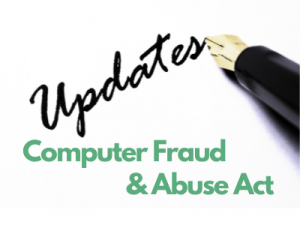 The busy trading floor of the New York Stock Exchange.[/caption]
The busy trading floor of the New York Stock Exchange.[/caption]
Some commentators criticize insider trading doctrine for its deficiencies in specificity and predictability. What may largely be to blame for this lack of definition is the fact that there is no federal securities law that prohibits insider trading. Rather, the Securities and Exchange Commission (SEC) relies on the antifraud provisions of Section 10(b) of the Securities Exchange Act of 1934, along with Supreme Court precedent, to regulate insider trading. Ambiguity is also attributable to a patchwork quilt of varying and sometimes conflicting judicial interpretations of SEC statutes. Soon, however, the Supreme Court will offer some clarity to this murkier area of financial crime.
Basic Background: Tipper/Tippee Liability
In Salman v. United States, No. 15-628, the Supreme Court will decide what constitutes a “personal benefit” in the insider trading context. Defining a “personal benefit” and whether or not one was received is critical to insider trading prosecutions. Fundamentally, insider trading takes place when an “insider,” or one who owes a fiduciary duty to a company, trades on material, nonpublic information of that company for profit.[1] For example, this will occur when an employee of an acquiring corporation, aware of an imminent but not yet publicized merger, purchases stock in the target company and sells that stock after takeover bids are made public. In casting a wider net of liability, the SEC also considers “tippers”—corporate insiders that exchange nonpublic, material information with non-insiders for a personal benefit—liable for insider trading.[2] Attaining a personal benefit for a tip is key, and without proof of one there will be no tipper liability. “Tippees” will also be prosecuted, but only if a tipper discloses confidential information to them for personal gain, and the tippee is aware of these facts during the exchange. A “remote tippee”—or one that is tipped off by other tippees who pass on insider information—will also be held liable, as long as the original tipper enjoyed a personal benefit and the remote tippee had knowledge of this.Issues in Salman: What Constitutes a Personal Benefit?
In order to receive a “personal benefit,” must a tipper be financially rewarded for their insider information? Or, does a tipper enjoy an inherent personal benefit simply by offering this information as a gift to a close friend or relative? The Supreme Court is confronted with these questions in Salman—the first insider trading case that the Court has heard in nearly twenty years. In Salman, defendant Bassam Salman was convicted by a California district court for securities fraud for trading on confidential information that came from an extended family member, Mounir “Michael” Kara. In the first instance, Michael received the information from his brother Maher, a banker for Citigroup. Under these facts, the SEC considered Salman to be a remote tippee. Before the Supreme Court, counsel for Salman argued that Salman should not be held liable as a tippee because insider Maher never benefited from tipping his brother. In its brief, counsel for Salman emphasized the fact that Maher incurred financial gain from neither Michael nor Salman in revealing confidential information. Due to the absence of Maher’s personal benefit, Salman’s counsel contended that the government failed to meet its burden in satisfying the elements of Salman’s remote tippee liability. Salman’s counsel advocated for the acceptance of the Second Circuit’s interpretation of personal benefit in United States v. Newman, 773 F.3d 438 (2d Cir. 2014), cert. denied, No. 15-137 (U.S. Oct. 5, 2015). In Newman, the Second Circuit held that while “the tipper’s gain need not be immediately pecuniary” for there to be some basis for a securities fraud prosecution, the personal benefit received by a tipper “must be of some consequence.” In its brief to the Supreme Court, Salman’s counsel restated the Newman holding that the government should not be able to prove the receipt of a personal benefit by “the mere fact of a friendship, particularly of a casual or social nature,” because “[i]f that were true,…the personal benefit requirement would be a nullity.” In other words, to establish personal benefit, the government must be able to show that the tipper gained something beyond the tippee’s good will. In contrast, the government argued that a gift of information for trading inherently endows a tipper with a personal benefit. This view is aligned with that of the Ninth Circuit, which affirmed Salman’s conviction after his appeal. The Ninth Circuit determined that the government did not need to demonstrate Maher’s pecuniary gain in order to prove that he gained a personal benefit from revealing nonpublic information. Rather, it would be sufficient if the government showed that Maher “‘ma[de] a gift of confidential information to a trading relative or friend.” In its brief, the government asserted that a tipper who offers confidential information as a gift “may benefit in tangible or intangible ways.” The government elaborated that offering confidential information may aid tippers in fulfilling social obligations, such as to elderly parents or struggling adult children. It added that tippers might give information to others in order to curry favor or vainly show off their generosity. The government also argued that a tipper might offer information in lieu of funds already owed to a tippee, which in turn, saves the tipper from spending money out of pocket.Conclusion
Oral arguments for Salman were heard before the Supreme Court on October 5. Securities lawyers, corporate insiders, and professional traders alike eagerly await to hear the the Court’s final ruling. I share the same hope as some legal scholars, that the decision will help to narrow and clarify the conduct that Rule 10b-5 proscribes. Newman’s more restrained interpretation of personal benefit is desirable. While legislation that prohibits insider trading has never actually been enacted, those charged with this offense still face criminal repercussions. In an area in which the judiciary has played a greater role than Congress in defining the law, it is appropriate to narrow the swath of individuals that may be prosecuted as offenders.
Amanda Grannis is a law clerk at Tor Ekeland P.C., and her admission to the New York Bar is pending. She is a 2016 graduate of Fordham Law School, where she studied securities law and federal litigation. [1] Chiarella v. United States, 445 U.S. 222 (1980). [2] Dirks v. SEC, 463 U.S. 646 (1983). ]]]]> ]]>



